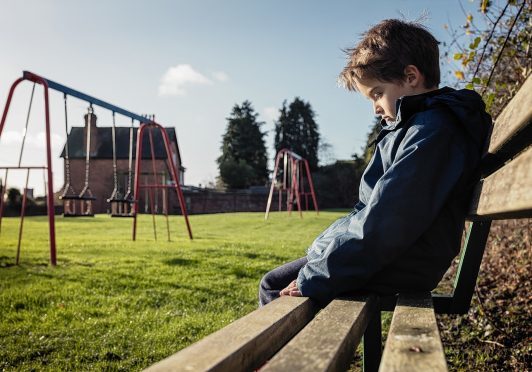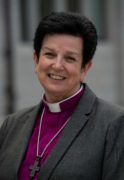“It is not usually like this in Aberdeen.” That’s what people are telling me.
What they are speaking about is the weather – the exceptionally hot and sunny days and warm evenings that we have enjoyed this summer. Often, the smell of a barbecue has been in the air.
As a newcomer to Aberdeen, this has been a surprise; it was not what I expected but locals tell me that this is not at all usual and that I should get ready for a different kind of summer next year.
Before moving to Aberdeen in February, those elsewhere told me what to expect.
The days and the people would be dour, they said. But it was not just the weather they were wrong about. It turns out that people in the north-east of Scotland are warm and welcoming.
Friendly people say hello in shops and on the buses. People turn to one another in queues to chat – sometimes it’s to share their observations of things around them or share frustrations – or joys – of their day; other times it is simply to pass the time of day and share a smile. I came to Aberdeen not knowing a soul; now I am making friends.
When out and about I wear a bishop’s purple shirt and clerical collar – my “uniform”, so to speak. That in itself sometimes generates an inquiry from someone as to what I represent and that can lead to a range of conversation thereafter.
When people speak to me they can tell from my Yorkshire accent that I am not a local.
Conversations generally go in one of two directions. We might speak about Aberdeen and the Shire, whether I like what I see and have experienced so far, and whether I am settling in.
People speak with me about religious faith, most often telling me why they do not go to church any more, if they ever did. I love these conversations – hearing what other people have to say and what they want to share makes my day.
Experiencing friendliness can turn a day around. Smiles and greetings, asking a question and carefully listening to the answer – these things cost us nothing.
Small signs of kindness, such as an expression of concern, can help a person feel that they matter, that they are part of a larger community. Friendliness is part of the glue that holds us together.
In Aberdeen I get about on foot or by bus. Walking to the bus stop nearest to my house, I pass the home of an elderly man who is often standing by the window. We wave at each other. He sees I am on the way to catch a bus, and if I am running late, indicates that I need to hurry up. We don’t know each other’s names, but this little bit of friendliness at the beginning of my day is really nice.
Across the city and beyond there are many elderly people who live alone, a considerable number no longer experiencing any contact or friendship in their day, some going days without seeing or speaking to another person. For many, the main source of company is their TV.
This social isolation has serious consequences for health and wellbeing.
The organisation Befriending Networks describes loneliness as being a contributing cause to the onset of dementia or heart disease, increasing the risk of death by nearly 10% among the elderly.
What a tragedy this is, especially in a region of the country that is so friendly.
Once loneliness sets in, a person can become isolated very quickly. There is less of a need to take care of oneself, to get dressed and to eat properly. On the difficult days there is no one to talk to or to ask for help.
We can all do a little to turn this around.
It can begin with being a good neighbour, as we might have an elderly person living alone right next door or on our street.
Friendship begins with small things, such as acts of kindness offered in ways that can easily be refused without embarrassment. Being friendly does not mean taking over or butting in where we are not wanted.
As I travel across the region, I see community centres, charity organisations and faith groups that run social events and lunch clubs, games afternoons and informal singing.
There are open invitations to join and often transport can be provided. Connecting those who live alone with these activities could quite literally be a life-saver.
All of us need friends. This is as true for those who have lived here for a long time, as it is for an incomer like me.
In this friendly region of Scotland, we can all do something to reduce social isolation.
Bishop Anne Dyer is the first female bishop in Scotland. She is the Episcopalian Bishop of Aberdeen and Orkney.

